Dear Deputy Minister, the past 80 years have been a meaningful historical journey. Could you share some of the notable milestones that have contributed to shaping Vietnam’s revolutionary diplomacy ?
The person who laid the foundation and shaped Vietnam's revolutionary diplomacy, and was also the first Minister of Foreign Affairs, was President Ho Chi Minh .
This is a very special honor for us during the past 80 years. We are proud to have made meaningful and remarkable contributions in the historical journey from gaining independence, maintaining independence, breaking the siege, embargo and then integrating into the world.
During the process of building, protecting and developing the country, perhaps the first milestone that needs to be mentioned is the Preliminary Agreement and Provisional Agreement in 1946. In a situation of a thousand pounds hanging by a thread, President Ho Chi Minh decided to make peace to advance, to take advantage of the opportunity, to take advantage of the most optimal opportunity to be able to maintain peace while preparing for the resistance war later.
The second milestone was in the resistance war against colonialism and imperialism. Diplomacy both served the resistance war and actively fought to break the siege and isolation and expand relations with the outside world, gaining the support of international friends for the nation's just resistance war. The pinnacle of the art of diplomacy was the two negotiations.
These are two negotiations that are not only historic for Vietnam but perhaps will go down in the history of negotiations in international relations: the Geneva Agreement negotiations in 1954 and the Paris negotiations in 1973. The success of these negotiations further consolidated Vietnam's position and strength along with other fronts to achieve complete victory.
In the period from 1995 to present, Vietnam's diplomacy continues to record very important achievements. From economic integration, we have deeply integrated into the international community; from participating in multilateral institutions, we have now promoted our role as an active and responsible member of the international community, with initiatives and meaningful contributions to common work.

Deputy Minister of Foreign Affairs Le Thi Thu Hang: "In the new era, the diplomatic sector will continue to strive and make efforts to achieve new results, contributing to the common cause of the whole country and the whole nation."
To date, Vietnam has diplomatic relations with 194 countries, of which 38 have relations of partnership or higher, including all members of the UN Security Council, members of the G7 and G20. In particular, Vietnam has strategic partnerships with all “former enemy” countries.
Another milestone that we are witnessing is that Vietnamese diplomacy has entered a new era for the nation. In the new era, the diplomatic sector will continue to strive and make efforts to achieve new results, contributing to the common cause of the whole country and the whole nation.
Put national and ethnic interests above all
So, what is the most important lesson that the Vietnamese diplomatic sector has learned over the past 80 years, Deputy Minister?
The first is the lesson of putting the interests of the nation and people above all else. Right from the 3rd Diplomatic Conference in 1964, President Ho Chi Minh advised diplomatic staff to always serve the interests of the nation. His thoughts have been imbued and implemented by generations of diplomatic staff over the past eighty years.
It is also a lesson about the Party's absolute and direct comprehensive leadership and its acumen in assessing and grasping the situation, making decisions at the most important moments.
Lessons on combining national strength with the strength of the times. We cannot win the resistance wars without the support of progressive people around the world and international friends. We also find it difficult to overcome the most difficult periods of siege and embargo without the support, both material and spiritual, of friendly countries.
Another lesson is the lesson of being steadfast in principles but flexible in strategy as President Ho Chi Minh taught. That is “using the unchanging to respond to all changes”.
Lessons about solidarity, consensus, seizing opportunities, fair diplomacy, winning people's hearts with justice, reason and morality.
Next, diplomacy must coordinate harmoniously with other military branches. For example, during the resistance war, diplomacy had to combine with the military, both fighting and negotiating. Later, diplomacy must combine with other forces to maintain good relations with other countries, attract development resources, protect the country's achievements and promote the value and soft power of Vietnam.

Deputy Minister of Foreign Affairs Le Thi Thu Hang: "Through cultural diplomacy, we can reach out to the world and the international community in the most heart-touching ways, from stories of cuisine, music and art, to ao dai, heritage..."
Deputy Minister, what is the role of economic diplomacy and cultural diplomacy in contributing to enhancing Vietnam's position and image in the international arena today?
If political diplomacy is the spearhead and the vanguard force, then economic diplomacy is the launching pad for potential, and cultural diplomacy is the launching pad for the nation's spirit.
In order for economic diplomacy and cultural diplomacy to best promote their roles in the period of renovation, the 11th Party Congress also set out the requirement of close coordination between political diplomacy, economic diplomacy and cultural diplomacy.
The 13th Congress also emphasized the need to closely and effectively combine economics, culture, society, foreign affairs with national defense... All of the Party's policies and guidelines have opened the way for diplomacy.
Economic diplomacy and cultural diplomacy have contributed practically and effectively to the country's overall development goals. I would like to cite the story of vaccine diplomacy. In a very difficult context at that time, we promoted vaccine diplomacy to help Vietnam become one of the countries that was guaranteed safety and opened the earliest.
Developing cultural diplomacy also helps us promote our nation's soft power. Through cultural diplomacy, we can approach the world and the international community in the most heart-touching ways, from stories of cuisine, music and art to ao dai, heritage... Vietnam is very skillful in integrating traditional and everyday Vietnamese art forms into high-level foreign affairs activities.
How will the role of the young generation of diplomats determine the future of our country's diplomacy, Mr. Deputy Minister?
Uncle Ho said "cadres are the root of all work", "cadre work is the key of the key", so training the young generation in any field is very important. It determines the future development. In the diplomatic sector, we pay great attention to training the young generation.
You guys now have more favorable conditions than we did. In the past, there were diplomats who were not professionally trained. Later, when we were recruited by the Ministry of Foreign Affairs, we were trained in short courses and especially learned from the classes of our uncles, aunts, and seniors.
Nowadays, students are trained in a very good environment. The Diplomatic Academy is one of the prestigious and high-quality training institutions. Not to mention many departments of international relations and international economics in different universities. Students also have the opportunity to study abroad or study in the country.
In addition to the expertise and diplomatic skills, I think the most important thing is that you must be inspired with a passion for the profession, equipped with the necessary skills of a diplomat, and if you want to become a good diplomat, you must have a spirit of patriotism and service as the "slogan" of the diplomatic sector over the past 80 years. That is "devoted to serving the country, serving the nation".
Implementing the three goals of foreign affairs
In the context of the country entering a new era, can you share any basic orientations of Vietnam's diplomacy in the coming time?
Our country has entered a new era at a time when the world and regional situation has had complex and unpredictable developments. During a meeting with the Ministry of Foreign Affairs, General Secretary To Lam emphasized: In the new era, the era of national development, Vietnamese diplomacy must reach new heights to fulfill its glorious mission, worthy of being the vanguard, an integral part of the Vietnamese revolution.
I think:
Firstly, Vietnamese diplomacy must promote its important and regular pioneering role in creating and consolidating a favorable, peaceful and stable foreign situation to realize the three foreign policy goals of security, development and enhancing the country's position. In particular, it must bring the relationship between Vietnam and other countries into a deep, effective, sustainable and mutually beneficial cooperation.
Second, through economic diplomacy, science and technology diplomacy, foreign affairs must pave the way to seize opportunities and resolve challenges with efforts to create new development drivers for the country, to promote internal strength as well as attract external strength. Foreign affairs must contribute to bringing the country in line with the development trend of the times, creating a proactive position to grasp new trends.
Third is to continuously enhance Vietnam's contributions to the common work of the international community, take on roles in multilateral institutions, be ready to contribute in multilateral forums; organize multilateral events and international conferences in Vietnam and especially be more active and proactive in putting forward initiatives.
Another very important point is to promote the soft power of the nation and raise the status as well as increase the influence of Vietnam. How can we not only be a strong country economically, but when mentioning Vietnam, people must talk about cultural values, so that Vietnam can go out into the world and also to bring the world closer to Vietnam.
Finally, it is very important to build a comprehensive, modern, professional Vietnamese diplomacy with a team of capable cadres, adaptable to the requirements of the new situation, meeting the development goals of our country in the new era.

Online discussion with the theme "80 years of Vietnamese diplomacy, serving the nation and people" with sharing by Deputy Minister of Foreign Affairs Le Thi Thu Hang.
“Touching” international friends with a comprehensive view of Vietnam
I am curious to ask that if the Vietnamese diplomatic sector had an application on the phone, what would we name it? For example, “VietDiplo – connecting the world with just 1 touch” or “Peace 360 – anytime, anywhere”?
This is a very good suggestion. We can build a mobile application, so that when we touch it, international friends will have comprehensive access to Vietnam - a peaceful country, with many natural heritages, cultural heritages, many dishes, many potentials for cooperation...
And the name is most important in terms of content to "touch" the user.
As someone who has worked in the diplomatic sector for many years, could the Deputy Minister share with VietNamNet readers a happy or sad memory or an inspirational story to help readers understand what a "person in the diplomatic sector" is like?
There are some happy memories but there are also some things that I feel unhappy about. There are times when I am very satisfied and excited about the results of my work, but there are times when I still think to myself that maybe I could do better.
So I think this is also one of the requirements for diplomats, especially for young people. That is to always strive, to try to do the best. When I was invited to exchange with students of the Diplomatic Academy, I asked them how they imagined diplomats.
I joked that you would think that diplomats are dressed beautifully, getting on and off horses, entering and exiting luxurious and noble places such as the presidential palace, palace, royal family…. But you do not know or do not know that behind the sparkling pictures are a lot of efforts, countless sleepless nights. And many diplomatic officers in the field of citizen protection or territorial borders, they have to climb mountains, wade through streams, and enter and exit the most dangerous places…
Do you remember the APEC 2017 event? A week before the conference, a big storm occurred, all our preparation efforts were destroyed or affected by the storm. However, in a very short time, all forces were determined and overcame. We organized the APEC Conference in Da Nang with many imprints.
The same thing happened during the US-North Korea Summit. The preparation time was just over a week, but all forces tried their best and we successfully organized the event, supporting both sides to have a safe and secure negotiation environment, respectful reception and feeling the warm hospitality of the Vietnamese people.
When I talked to many people, they shared the question "why Vietnam is so devoted to a conference of two seemingly unrelated countries", and the answer is for Peace, because it wants to contribute, even a small one, to world peace. Throughout my work, I have been energized and motivated by such seemingly small things...
Vietnamnet.vn
Source: https://vietnamnet.vn/ngoai-giao-viet-nam-80-nam-phung-su-quoc-gia-dan-toc-2441851.html







![[Photo] General Secretary To Lam chairs the meeting of the Central Steering Committee on preventing and combating corruption, waste and negativity](https://vphoto.vietnam.vn/thumb/1200x675/vietnam/resource/IMAGE/2025/9/29/fb2a8712315d4213a16322588c57b975)
![[Photo] President visits Vietnam's Permanent Mission to the United Nations](https://vphoto.vietnam.vn/thumb/402x226/vietnam/resource/IMAGE/2025/9/24/b97c02dea2634eb38b94b1d6145671e3)






















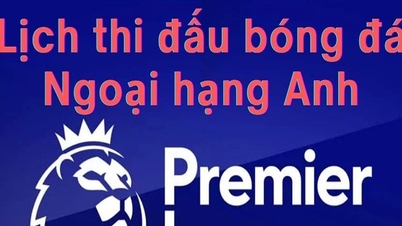


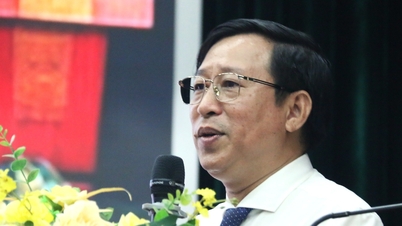
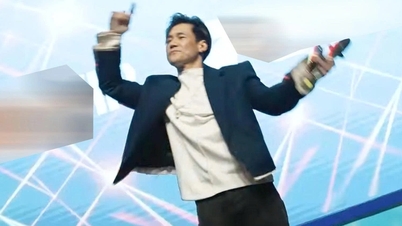
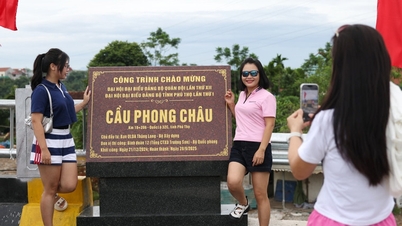































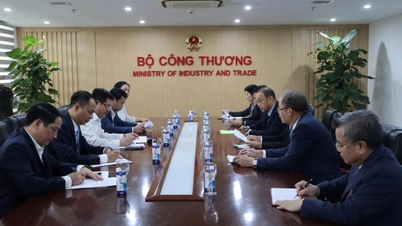








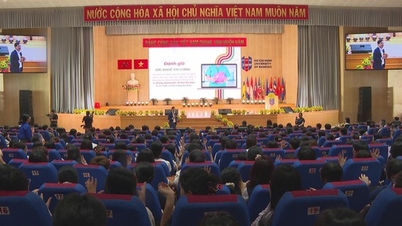

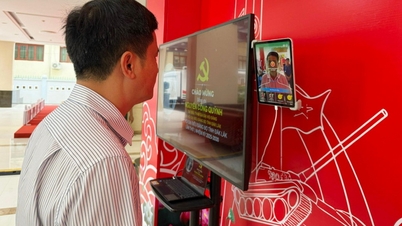

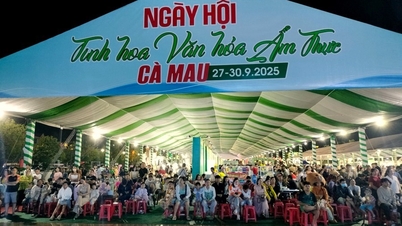













Comment (0)